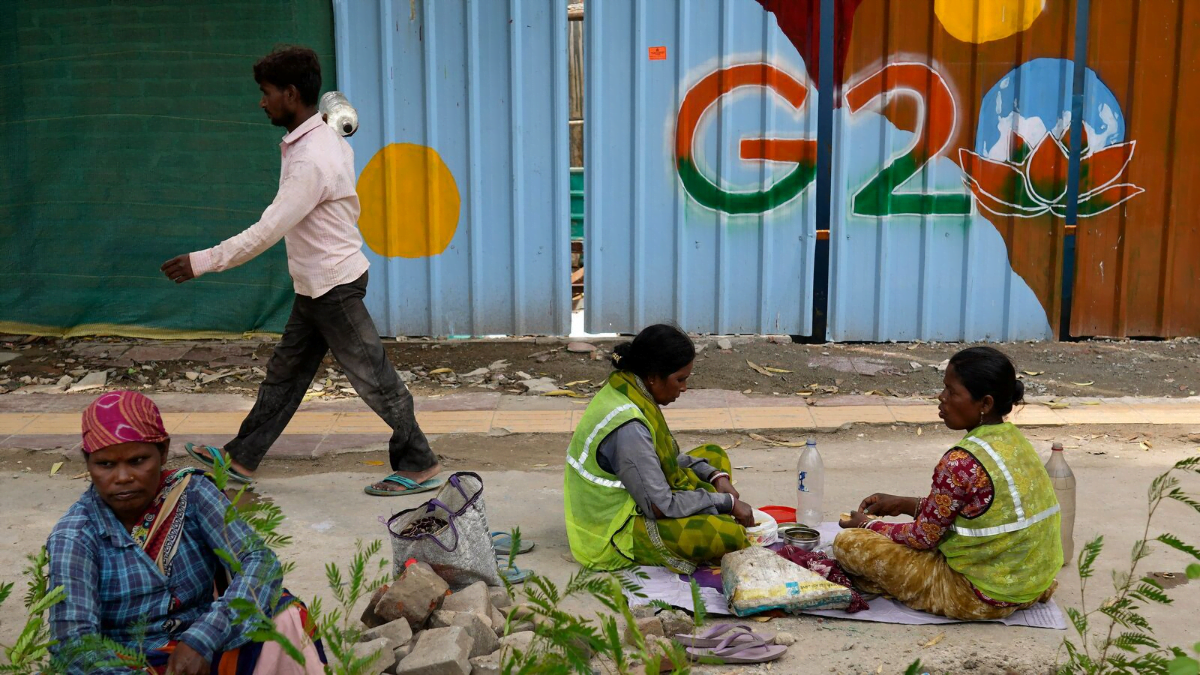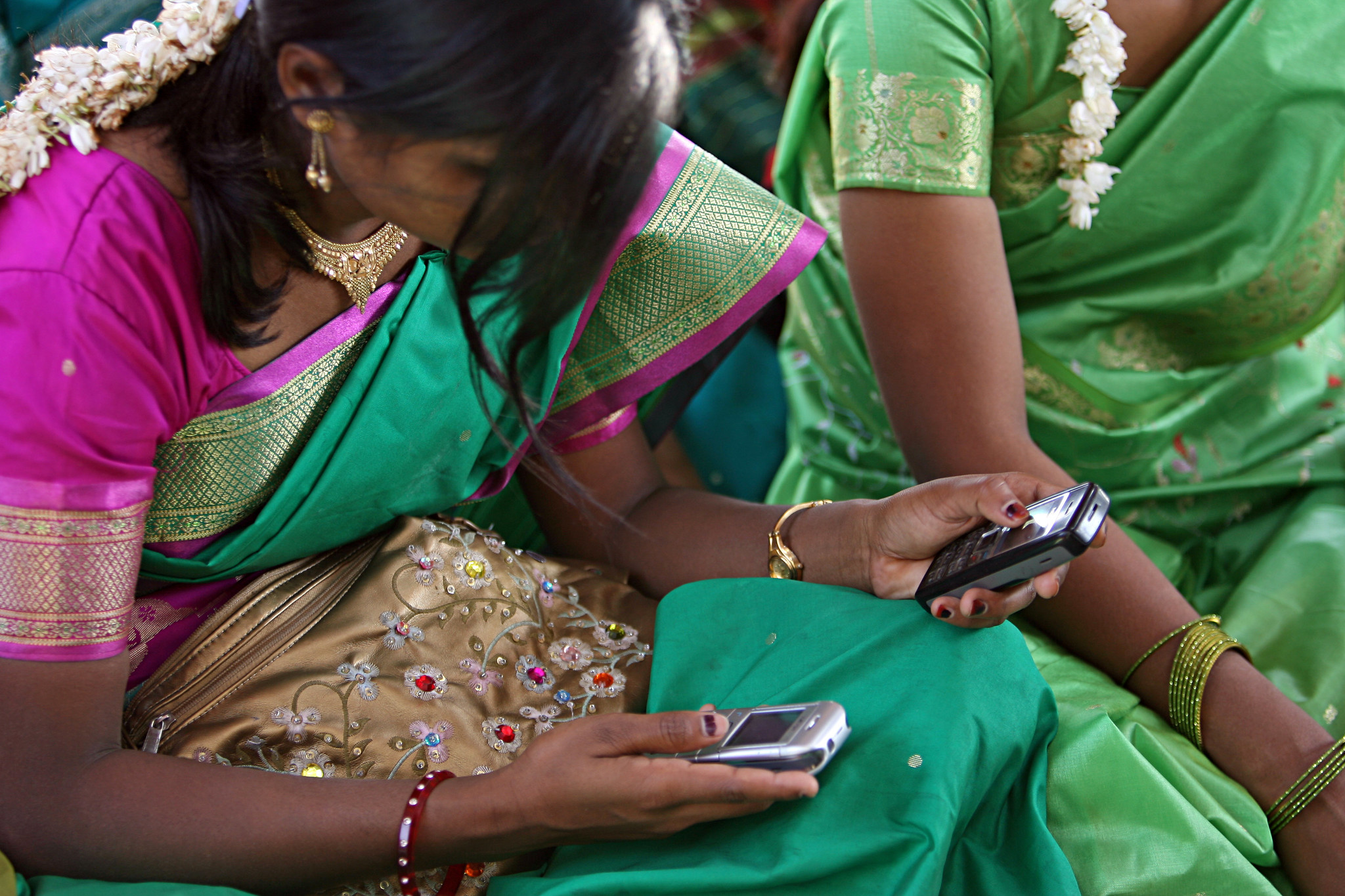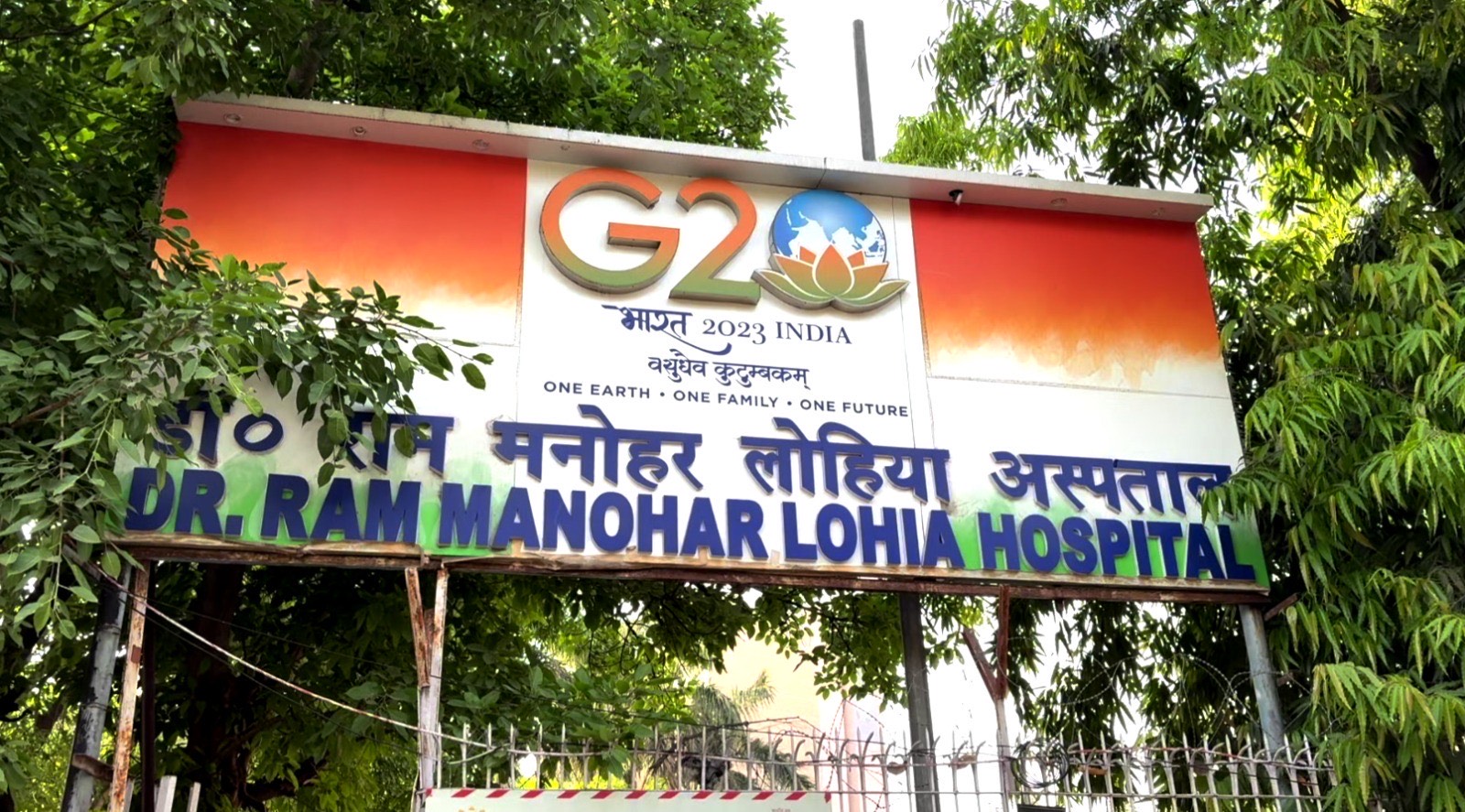‘Dilli abhi door hai‘ which translates to ‘Delhi is still far away‘ is a common idiom used in Hindi to describe how one’s destination is still far off. It can be used as a metaphor for the destitutes who have reached the destination of Delhi. Leaving their home towns and villages, indigents settle in the capital city as migrants in the hope of a way to a better life and more income sources, but end up living in poor conditions with no dignity of labour and lose the basic necessities due to dearth of resources. The city of Delhi, which is a destination for the dreamers and the hustlers who withstand each day to sustain themselves and their families. But is this really the desirable or dream place of hopes they were searching for and for which they travelled so far?
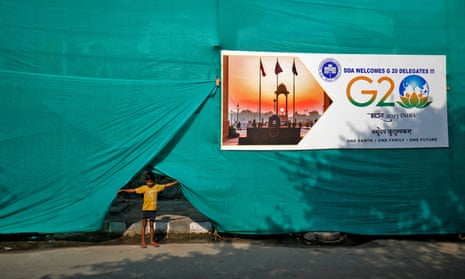
The whole city of Delhi is divided into several parts. Some areas belong to the rich and other parts belong to the poor. The areas occupied by the high-income class and officials are functional with accessible systems and adequate sanitation. During events like the recent G20 summit, only these areas became the point of attraction and went through beautification and overnight infrastructure improvements and cleanliness, which included eradicating the poor, who live in the darks of these areas.
The ragpickers, barrow holders, and junk sellers deemed a nuisance by the elite, were thrown away as a burden on the development of the whole nation. Their realities are not admired by Indian leaders, as they signal that the roots of India are still deeply fettered by poverty. The miserable conditions in which the poor survive in cities are grim and unlivable. The concealed disparity between the underground, the ones who suffer in the dark away from light and hope, and the overground with people who enjoy ample resources and light freely, becomes stark at times like the G20.
In the capital city of the nation, where luxury has been spent on foreign ministers, the promises of development that are being signed in the G20 will remain in the hands of the privileged.
When FII talked to a ragpicker named Santosh, aged 48, surviving on the roadside of Hudson Lane, she described how police have been trying to remove her from the area, but as she does not have any other source of income to survive and feed her children, she is continuing this job surreptitiously. In the capital city of the nation, where luxury has been spent on foreign ministers, the promises of development that are being signed in the G20 will remain in the hands of the privileged.
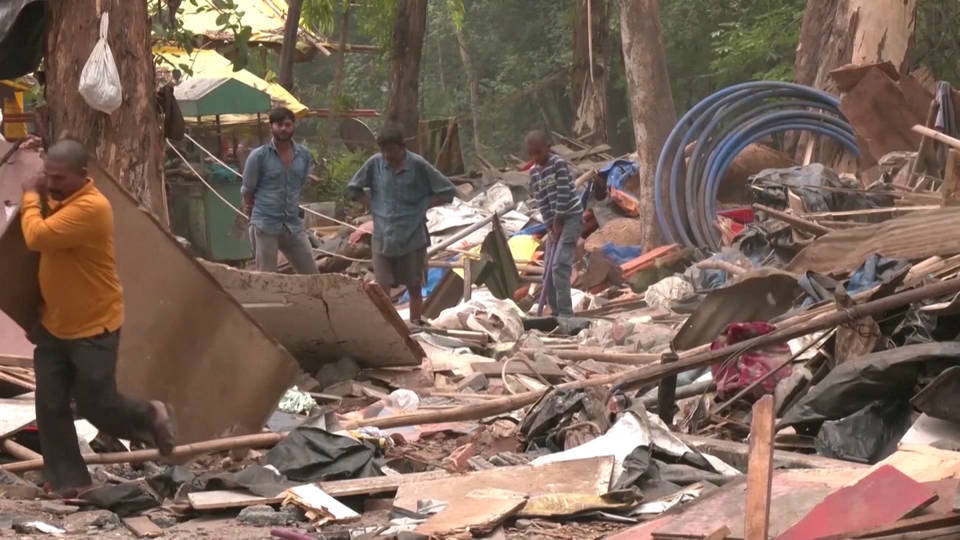
She said, ‘Government works for only superiors and not inferiors.’ When Santosh was asked more about her job, she said, ‘If I don’t do this job, then how will I eat?‘ She only earns Rs 100–150 daily and uses it all for daily consumption. She’s striving for better conditions as she sleeps on the park benches, but the world has left her no choice but to be a ragpicker, which is not even acceptable to the crossing motorcade.
The budget cap for G20 preparation was vastly higher than employment schemes like MGNREGA, which depicts the priority of the nation flourishing more towards globalisation while the domestic population is suffering and is not compensated for the loss. As stated by Ram Bahur, a 35-year-old roadside barber in North Delhi, ‘No matter which party is in power, there’s no one to look after the poor.’
As stated by Ram Bahur, a 35-year-old roadside barber in North Delhi, ‘No matter which party is in power, there’s no one to look after the poor.’
Ram is the breadwinner of the family; he came to Delhi from Bihar for a better life but is left miserable. He works every day under risky conditions under which the government might obliterate his stand, especially during times like the G20. His small pocket has been reduced to the bare minimum owing to the shortage of customers as the areas were sealed and closed. He describes how basic necessities like food are running short in his area due to restrictions on the supply.
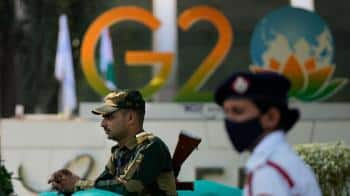
Delhi, which is overpopulated and cramped with scarce resources, snatches away the basic rights of the indigent as the number of mouths to feed increases, be it through more migrants or foreign ministers. The three-day-long event did not affect the ones with permanent income, when the reality is that there are marginalised sections of Delhi who are highly dependent on the unorganised sector. To this, a 60-year-old junk seller from Delhi commented, ‘Don’t give us anything; at least feed our children.‘ The nation is progressing towards globalisation and privatisation, but we are still not able to care for the poor in our cities.
The areas that are labelled disgraceful comprise a huge part of India and are usually untouched by development of any sort. During events like the G20, sections such as old Delhi were completely abandoned of any change, leaving more people unemployed due to restrictions at the workplace. The daily wage workers are tormented, and there is no alternative for the footpath sleepers. On this, a security guard from old Delhi said, ‘New Delhi has been transformed into a glass palace, but not an inch of change has been seen in old Delhi for so many years. It’s unfair to keep a region out of transformation consciously.’
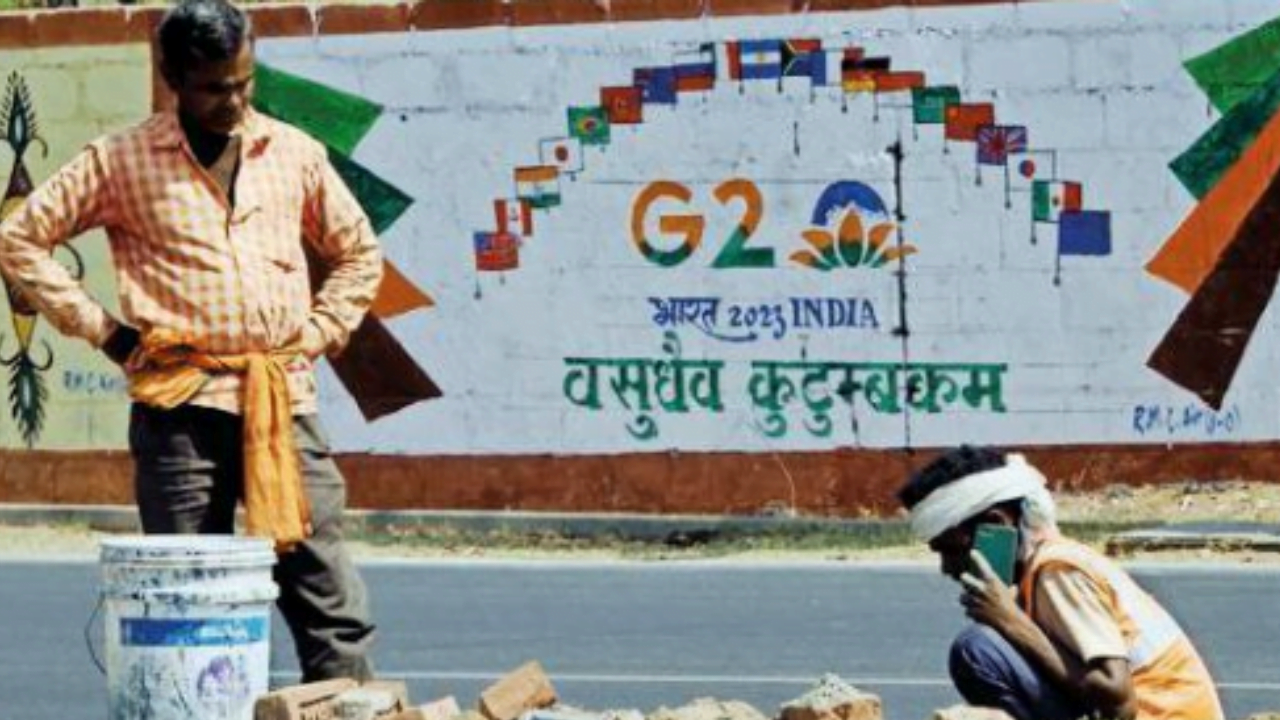
The idea of equality, which the constitution yells about, becomes a far-off dream for the poverty stricken. The widening gap is causing affliction, and only the poor are bearing the cost. Sangeeta, a Rajasthani woman with a disabled daughter, works as a ragpicker in Delhi. With no home or place to go, they grab trifling spots and corners on roads and religious monuments as shelter.
Sangeeta, a Rajasthani woman with a disabled daughter, works as a ragpicker in Delhi. With no home or place to go, they grab trifling spots and corners on roads and religious monuments as shelter.
However, they are removed from all of them. Surviving the everyday violence and miseries that Delhi has thrown at them questions the development that we are talking about in the G20. Is that development even real? If India’s poor are being banished just for existing during an event like the G20 summit, as a country, we really need to radically re-evaluate what “development” means to us.
